What is Coronavirus?
information sourced from the Center for Disease Control and Prevention Coronaviruses are a type of virus that were named for the crown-like spikes on their surface. There are four main sub-groupings of coronaviruses, known as alpha, beta, gamma, and delta. Human coronaviruses were first identified in the mid-1960s. The seven coronaviruses that can infect people
- Published in Items
Additional News & Resources
Comprehensive Handwashing Guide – CNA New England Journal of Medicine: Covid-19 – Navigating the Uncharted Nowcasting and forecasting the potential domestic and international spread of the 2019-nCoV outbreak originating in Wuhan, China: a modelling study UCSF’s Dr. Charles Chiu partners with Mammoth Biosciences to develop rapid diagnostic tests for Wuhan Coronavirus Bay Area Biotech companies
- Published in Items
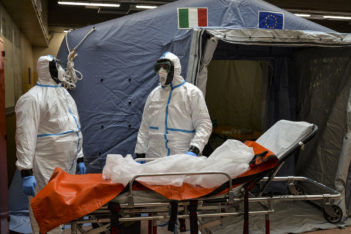
Outbreak News & Reports
LIVE UPDATE OUTBREAK REPORTING MAP The World Health Organization is publishing frequent reports on the SARS-CoV-2 situation. You can find the whole list of reports here. For information on the COVID-19 situation in Berkeley, you can go to the Berkeley City dashboard. Alameda county is also maintaining an up to date database. For any concerns
- Published in COVID_19
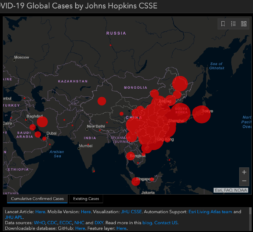
New York Times: Transmission patterns of coronavirus “very concerning”, remarks CEND Faculty Dr. Art Reingold
Extracted from the New York Times on January 1st, 2019: In Japan, a tour bus driver in his 60s who had driven two different groups from Wuhan, China, was confirmed to have the coronavirus, officials said on Tuesday. The driver had no history of traveling to Wuhan, the epicenter of the outbreak. “I think
- Published in news
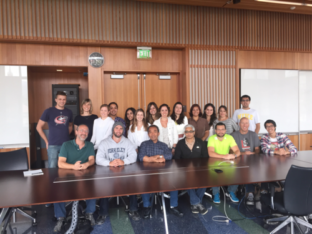
CEND Investigator and Grad Students Publish Paper on Antimicrobial Resistance
CEND Investigator Dr. Lee Riley and lab members Julia Rubin, Kaitlyn Mussio, Yaqi Xu, and Joy Suh recently published their paper Prevalence of Antimicrobial Resistance Genes and Integrons in Commensal Gram-Negative Bacteria in a Community College in the journal Microbial Drug Resistance. Abstract Although the human intestinal microbiome has been shown to harbor antimicrobial drug resistance genes
- Published in news
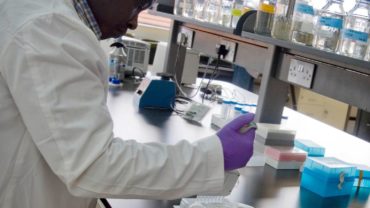
We’re Hiring! Student Assistants for the Uganda Workshop
The Alliance for Global Health and Science is looking for 2 summer interns to help develop and execute three 2 week-long wet lab workshops in metagenomics, tissue culture/immunology, and protein purification in conjunction with faculty and student assistants. The interns will spend 3-10 hours per week during the Spring semester testing workshop protocols, and then travel
- Published in fellowship opportunities
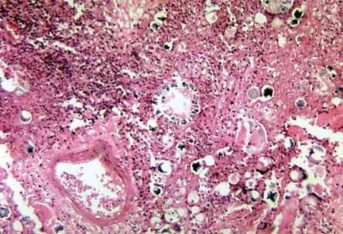
CEND Investigator Justin Remais’ lab tackles Valley Fever
The National Institute of Health has awarded the UC Berkeley School of Public Health with $3.8 million to research the emergence of Valley Fever, also known as coccidioidomycosis, or “cocci”. This research will be spearheaded by the lab of Dr. Justin Remais, CEND investigator and Head of Environmental Health Sciences at the UC Berkeley School of
- Published in news
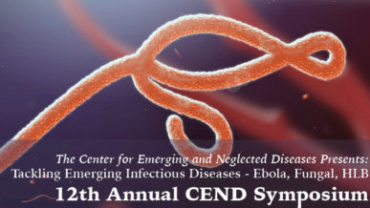
12th Annual CEND Symposium – Open for Registration!
- Published in events
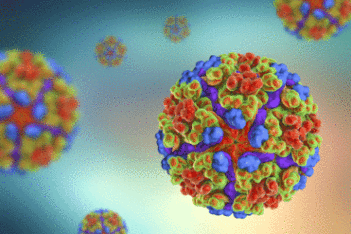
CEND investigator Eva Harris publishes paper on Chikungunya
Unexpectedly, disease severity and high transmission rates go hand-in-hand. Read more about Dr. Harris’ findings here.
- Published in news

CEND Investigator Britt Glaunsinger uncovers how viruses interact with – and steal from – their hosts
CEND Investigator Britt Glausinger, a virologist in the Department of Plant and Microbial Biology, and her team study the tactics that gammaherpesviruses use to manipulate gene expression in host cells during infection. Learn more about her work and findings in BREAKTHROUGHS: The Magazine of the College of Natural Resources. Featured image taken by Elena Zhukova
- Published in news
